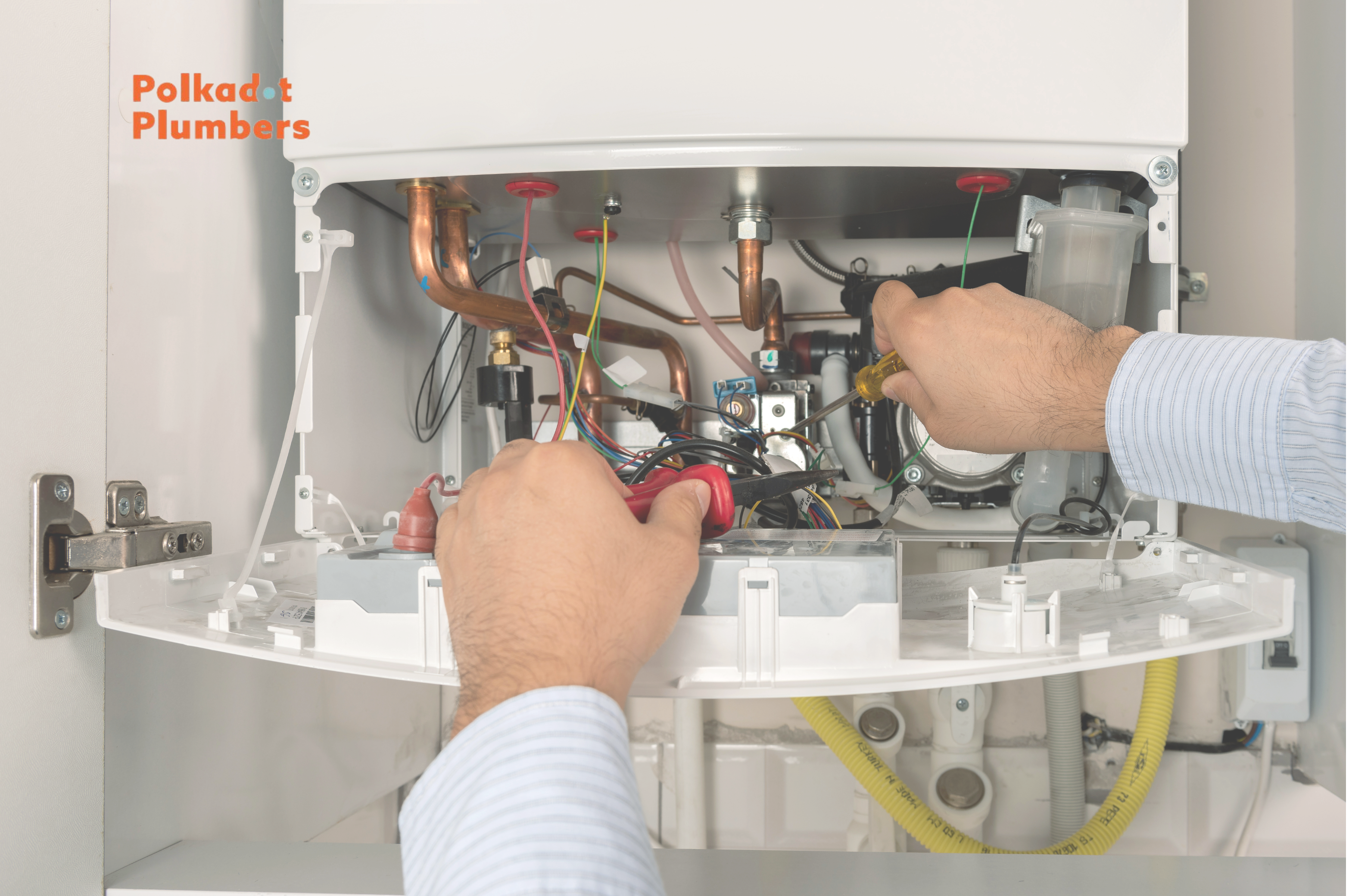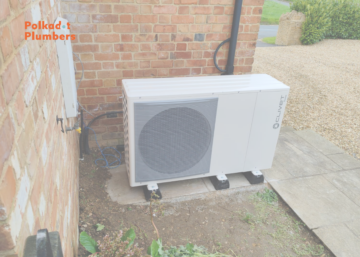When it comes to home improvements, installing a new boiler is a significant project. It’s not just about having the right model, but also understanding the installation process.
So, how long does it take to install a new boiler?
This is a common question homeowners ask. The answer, however, is not as straightforward as one might hope.
The installation timeline can vary greatly. It depends on several factors, including the type of boiler, the complexity of the installation, and the condition of your existing infrastructure.
In this article, we aim to shed light on the boiler installation timeline. We’ll explore the factors that influence it and what you can expect during the process.
Whether you’re a homeowner planning a boiler replacement or just curious about the process, this guide is for you. Let’s dive in and debunk the boiler installation time.
Understanding the Boiler Installation Timeline
The timeline for a new boiler installation is not set in stone. It can range from a single day to several days, depending on your factors.
On average, a straightforward boiler installation can take between 1 to 3 days. This is the case when you’re replacing an old boiler with a new one of the same type and in the same location.
However, if the installation involves a boiler conversion or additional work, it can extend the timeline. For instance, switching from a conventional boiler to a combi boiler requires more time due to the complexity of the job.
Here’s a rough breakdown of a typical boiler installation timeline:
- Day 1: Removal of the old boiler and preparation for the new installation
- Day 2: Installation of the new boiler and connection to the existing system
- Day 3: Testing and final adjustments
Remember, this is just a general guide. The actual timeline for your boiler installation may vary based on the specifics of your house layout.
Factors That Can Influence Your Boiler Installation Time
The type of boiler you’re having installed is a significant factor. For instance, combi boilers are usually quicker to install than system or conventional boilers.
The complexity of the installation also plays a role. A straight swap, where the new boiler is the same type and in the same location as the old one, as you can imagine, has the quickest installation time.
Type of Boiler and Installation Complexity
Combi boilers, which provide heating and hot water directly from the boiler, are generally quicker to install. This is because they don’t require a separate hot water cylinder or cold-water storage tank.
On the other hand, system and conventional boilers are more complex. They require a separate cylinder for storing hot water, which adds to the installation time.
Converting from one boiler type to another, such as from a conventional to a combi boiler, can extend the installation time. This is due to the additional work involved in the conversion.
Condition of Existing Infrastructure
The condition of your existing pipes and radiators can also affect the installation time. If they’re in good condition, the installation will be quicker.
However, if your pipes or radiators need replacing or repairing, this will add to the project timeline. The same applies if new pipes need to be run to accommodate the new boiler.
It’s also worth noting that the location of your boiler can impact the installation time. If the new boiler is to be installed in a different location, additional time will be needed to run new pipes.
Installer Experience and Availability
The experience and efficiency of the installation team can significantly impact the duration of the project. A skilled and experienced team, like Polkadot can complete the job quicker than a less experienced team.
The availability of the installation team can also affect the timeline. For instance, winter is a busy season for boiler installers, which could lead to scheduling delays.
Lastly, the time it takes to obtain any necessary permits or comply with local regulations can also influence the installation timeline. It’s always best to factor in some extra time for these potential delays.
Preparing for Your New Boiler Installation
Before the installation day, there are several things you can do to prepare. This preparation can help ensure a smooth and efficient installation process.
Firstly, it’s important to clear the work area. This means removing any items that could obstruct access to the boiler location. This not only makes the job easier for the installers but also helps protect your belongings from potential damage.
Secondly, ensure easy access to the boiler location. This might involve moving furniture or other items that could hinder the installers’ work. The easier the access, the quicker the installation will likely be.
What Homeowners Can Do to Facilitate a Smooth Installation
In addition to preparing the work area, there are other steps homeowners can take to facilitate a smooth installation. These steps can help reduce the installation time and ensure a successful project.
- Schedule a site survey: A site survey is often conducted before the installation. This helps the installers assess the work needed and provide an accurate timeline.
- Understand the disruption: Be aware that the installation may involve a brief interruption of gas, water, and electricity services. It’s advisable to schedule the installation at a time when the household can accommodate the disruption.
- Prepare for disposal: Proper disposal of the old boiler is part of the installation process. Make sure you have a plan for this to avoid any delays.
The Installation Process: What to Expect;
The installation process begins with the removal of your old boiler. This step is crucial and must be done carefully to avoid damage to your property. The old boiler will then be properly disposed of, in accordance with local regulations.
Next, the new boiler will be installed. This involves connecting it to your existing pipework and making sure it’s securely mounted. The complexity of this step can vary depending on the type of boiler and the condition of your existing infrastructure.
Finally, the new boiler will be tested to ensure it’s working correctly. This includes checking for leaks and making sure the boiler is heating your home efficiently.
Day of Installation: Steps and Procedures
On the day of installation, the installers will arrive at your property at the agreed time. They will bring all the necessary tools and equipment for the job. It’s important to ensure they have clear access to the boiler location.
The installers will then begin the process of removing your old boiler. This can take several hours, depending on the complexity of the job. Once the old boiler is removed, the new one can be installed.
After the new boiler is installed, it will be thoroughly tested. This includes checking all connections, ensuring the boiler is operating at the correct pressure, and making sure it’s heating your home effectively. The installers will also explain how to operate the new boiler and its controls.
Post-Installation: Testing and Final Touches
Once the new boiler is installed, it’s not ready for use just yet. The installation team will conduct a series of tests to ensure everything is working as it should. This includes checking the boiler pressure, testing the heating controls, and ensuring there are no gas or water leaks.
In addition to testing, the team will also commission the boiler. This involves setting it up for optimal performance and efficiency. They will adjust the settings to suit your home’s heating needs and provide you with instructions on how to use and maintain your new boiler.
After the testing and commissioning phase, the installation team will clean up the work area. They will remove any debris and make sure your home is left as tidy as it was before they arrived. This marks the end of the boiler installation process.
FAQs About New Boiler Installation
When it comes to new boiler installations, it’s normal to have a few questions. We’ve compiled a list of the most frequently asked questions to help you understand the process better.
- What is the best time of year to install a new boiler?While boilers can be installed at any time of the year, many homeowners choose to do it in the summer or early fall. This is because the demand for boiler installations is lower, and you’re less likely to need your heating system during these months.
- Can I install a boiler myself?It’s strongly recommended to hire a certified professional for boiler installations. This ensures the job is done safely and correctly, and it’s often a requirement for warranty purposes.
- How often should I replace my boiler?The lifespan of a boiler can vary, but most last between 10-15 years. If your boiler is older than this, it may be time to consider a replacement.
Remember, if you have any other questions, don’t hesitate to reach out to Polkadot. We can provide you with personalised advice based on your situation.
Next Steps
Understanding the timeline for a new boiler installation can help you plan accordingly. Remember, the process can vary.
Choosing a certified and reputable boiler installer is crucial. We can provide an accurate timeline, ensure the job is done safely and correctly, and offer post-installation support.
Finally, remember that a new boiler is an investment in your home’s comfort and efficiency. While the installation process may seem daunting, the long-term benefits are certainly worth it.



